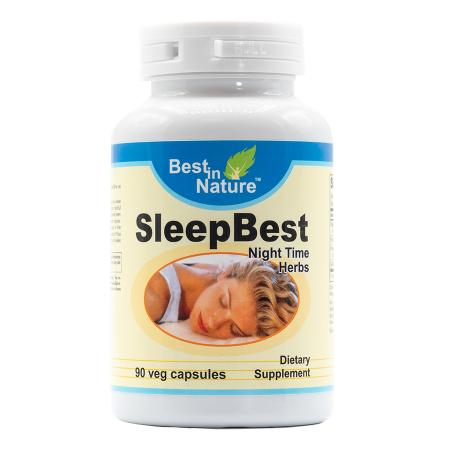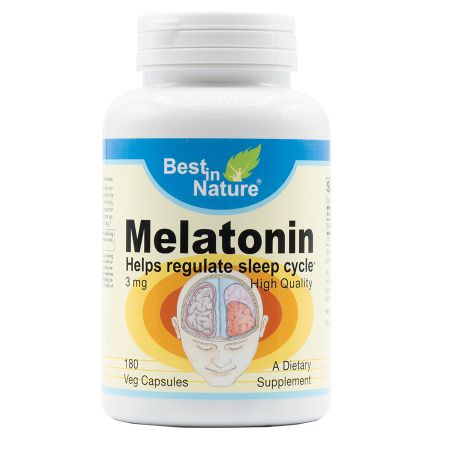
Reviewed and Updated: January 17th, 2024
Getting a good night’s sleep is important for your health, but finding the right solution when you’re struggling with sleeplessness can be tricky. Many people turn to natural supplements like Valerian root and melatonin to help them fall asleep, but which one is the better choice for you? Valerian root and melatonin both have their own benefits and drawbacks, and they work differently in the body. In this article, we’ll break down how each supplement works and help you figure out which one might be more effective for your specific sleep needs.
What is Valerian Root?

Valerian root is a natural herb that has been used for centuries to help people relax and calm their nerves. It’s extracted from the root of the Valeriana officinalis plant and is commonly taken as a supplement to promote better sleep. Scientists are unsure of the exact mechanism behind valerian, but they think it boosts the levels of a chemical called gamma-aminobutyric acid (GABA) in the brain. Valerian works by interacting with GABA receptors in your brain. GABA is a chemical that helps reduce brain activity, making it easier for you to relax and fall asleep.
Some studies suggest that Valerian root can be effective for managing mild insomnia and anxiety, helping you unwind and get to sleep faster, though results may vary from person to person.
What is Melatonin?

Melatonin is a hormone that your body naturally produces to help regulate your sleep-wake cycle, telling you when it’s time to go to bed. It’s especially important in signaling to your brain that nighttime has arrived, helping you wind down and fall asleep. Melatonin supplements are often used when this natural process gets disrupted, like when you’re dealing with jet lag, shift work, or any sleep disorder caused by irregular sleep patterns. The overall effects of melatonin in humans are not fully understood, but most studies suggest it plays a key role in synchronizing circadian rhythms throughout the body. Circadian rhythms are physical, mental, and behavioral changes that follow a 24-hour cycle, with the sleep-wake cycle being the most prominent. These natural processes are primarily influenced by light and dark. The pineal gland produces the highest levels of melatonin at night and very low amounts during the day.
By taking melatonin, you’re essentially giving your body a gentle nudge to start the sleep process, making it easier to fall asleep and stay asleep in challenging situations.
Best in Nature has high-quality 3mg Melatonin Capsules here.*
Valerian vs. Melatonin: is One More Effective and Which is Right for You?
When it comes to choosing between Valerian root and melatonin, the effectiveness of each depends on the type of sleep issue you’re dealing with.
- Stress or anxiety-induced insomnia: If your sleeplessness is caused by stress or anxiety, Valerian root may be a better fit. Its calming effects on the nervous system can help ease restlessness and tension, making it easier to fall asleep naturally. Valerian is often recommended for those dealing with mild insomnia linked to stress, helping you relax at bedtime.
- Circadian rhythm-related sleep issues: Melatonin is more effective when your sleep problems stem from disruptions in your body’s internal clock. Conditions like jet lag, shift work, or delayed sleep phase syndrome (where your sleep-wake cycle is out of sync) are better suited for melatonin. It works by signaling to your brain that it’s time to sleep, helping to regulate irregular sleep patterns.
Ultimately, the choice depends on your specific needs. Valerian may be better suited for people who have trouble winding down, while melatonin can be more beneficial for those struggling to fall asleep due to a disrupted sleep pattern.
Common Dosages of Valerian Root and Melatonin
- Valerian: For Valerian root extract, a common dose is between 300-600 mg, usually taken 30 minutes to 2 hours before bedtime. This timing helps your body relax as you prepare for sleep. It is recommended to use valerian root for up to 6 weeks, taking a month off and then resuming use again for 6 weeks.
- Melatonin: Typical melatonin doses range from 0.5 mg to 5 mg, depending on the condition you’re treating. Lower doses are often used for general sleep support, while higher doses might be recommended for specific conditions like jet lag or shift work.
- Caution: It’s always best to start with the lowest dose possible and gradually adjust based on your response. Be sure to consult a healthcare provider for personalized advice.
Possible Interactions and Side Effects
Valerian root: Before incorporating Valerian root into your sleep routine, it's important to be aware of potential interactions and side effects. Like many natural supplements, Valerian can interact with certain medications and cause mild side effects in some individuals.
Interactions: Valerian may interact with medications that have sedative effects, such as anti-anxiety drugs, antidepressants, and certain sleep aids. If you're taking any of these, it’s important to consult your healthcare provider before adding Valerian to your routine.
Side effects: While Valerian is generally well-tolerated, it can cause side effects like dizziness, drowsiness, or digestive discomfort in some individuals. Starting with a low dose may help reduce the likelihood of these effects.
Melatonin: While melatonin is a popular and widely used supplement for sleep, it's important to be aware of potential interactions with medications and any possible side effects. Understanding these risks can help you use melatonin more safely and effectively.
Interactions: Melatonin may interact with certain medications, including blood thinners, diabetes medications, and immune system drugs. If you're taking any of these, it's a good idea to check with your doctor before using melatonin to avoid any adverse effects.
Side effects: Some people may experience side effects from melatonin, such as dizziness, daytime drowsiness, or headaches. If this happens, adjusting the dose or timing may help reduce these effects.
Is It Safe to Take Both?
While both Valerian and melatonin are considered safe individually, combining them is NOT always advisable. Both supplements can cause drowsiness, and taking them together may result in excessive sedation, dizziness, or impaired cognitive function. If you’re considering using both, it’s important to speak to a healthcare professional to ensure it’s appropriate for your situation.
Alternatives to Valerian or Melatonin
If neither Valerian nor melatonin seems right for you, there are other natural sleep aids you can try. Herbal options like chamomile or lavender can promote relaxation, while magnesium supplements have been shown to improve sleep quality by relaxing muscles. In addition to supplements, simple lifestyle changes such as reducing caffeine intake, following a consistent sleep schedule, and limiting screen time before bed can also make a significant difference in sleep quality.
Bottom Line
Both Valerian root and melatonin can be effective sleep aids, but they work best for different types of sleep issues. If you struggle with anxiety or stress-induced sleeplessness, Valerian might be the better choice. For those dealing with circadian rhythm disruptions, melatonin could help you reset your internal clock. Ultimately, it’s important to consider your personal sleep challenges, consult with a healthcare provider, and start with lower doses to find the right solution for your needs.
* This article is for informational purposes only and doesn’t constitute medical advice. For immediate health concerns, please consult your physician.
These statements have not been evaluated by the Food and Drug Administration. Products are not intended to diagnose, treat, cure or prevent disease.
© 2024 Best in Nature All rights reserved








Validate your login
Sign In
Create New Account